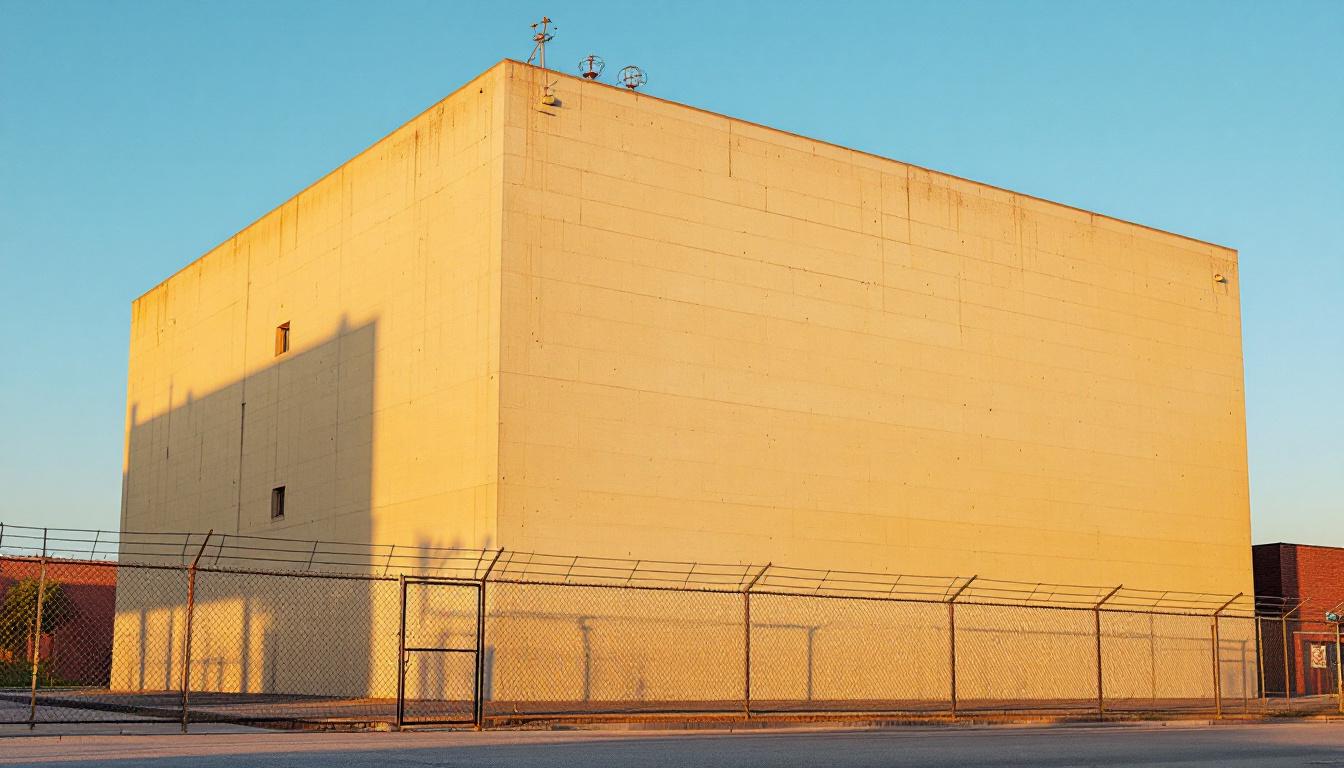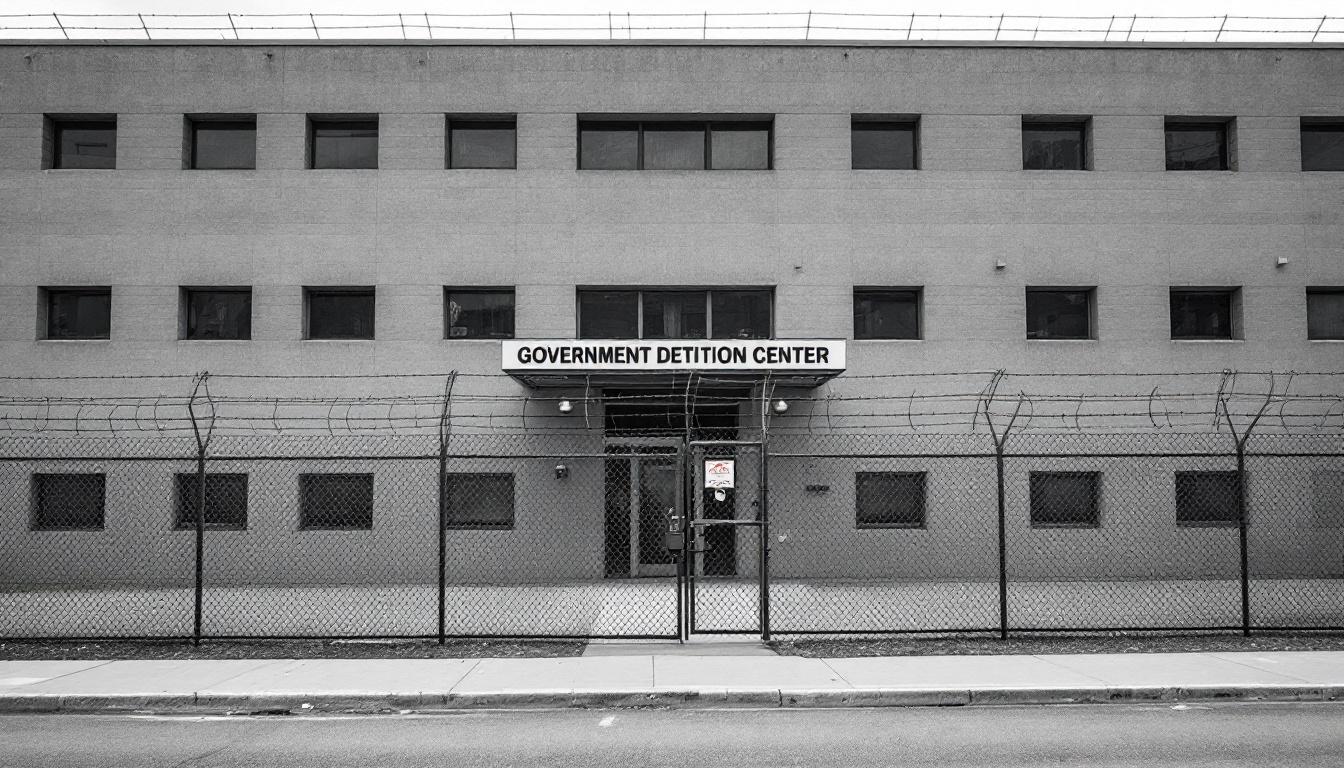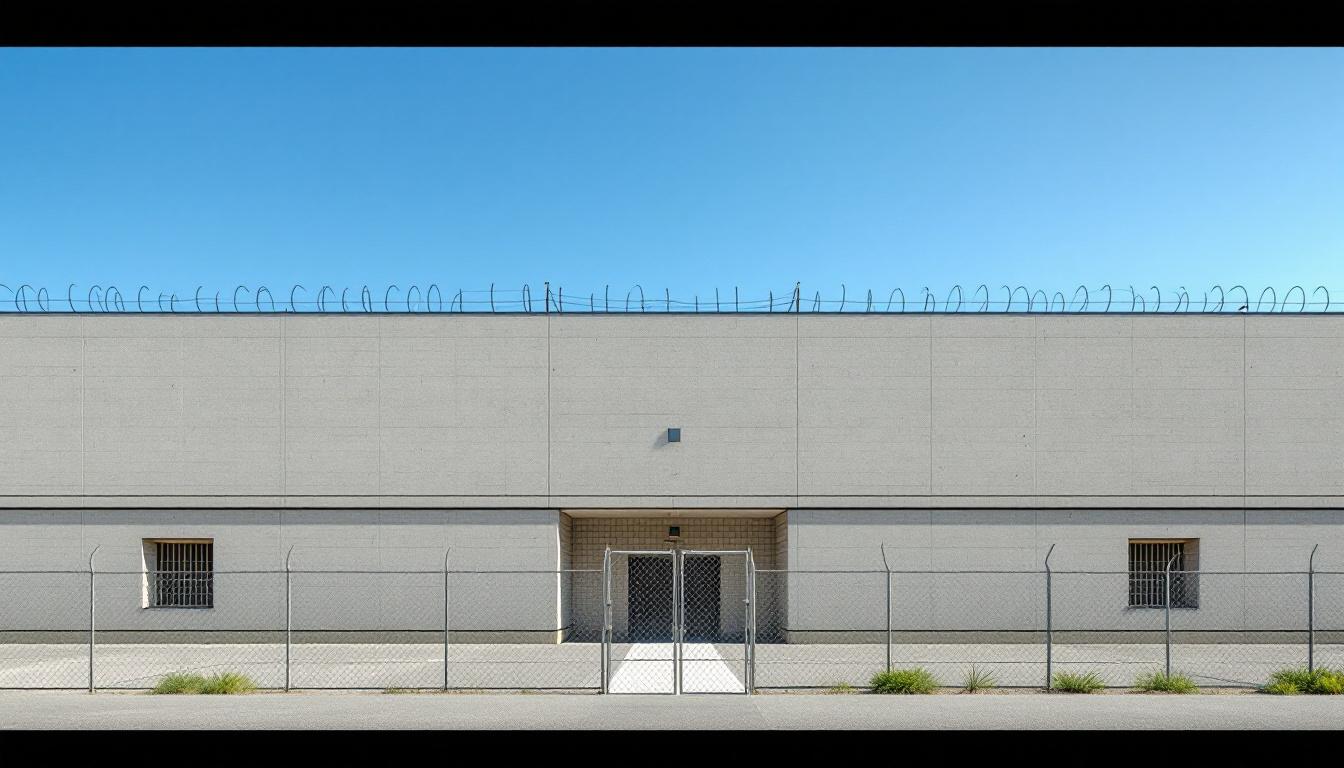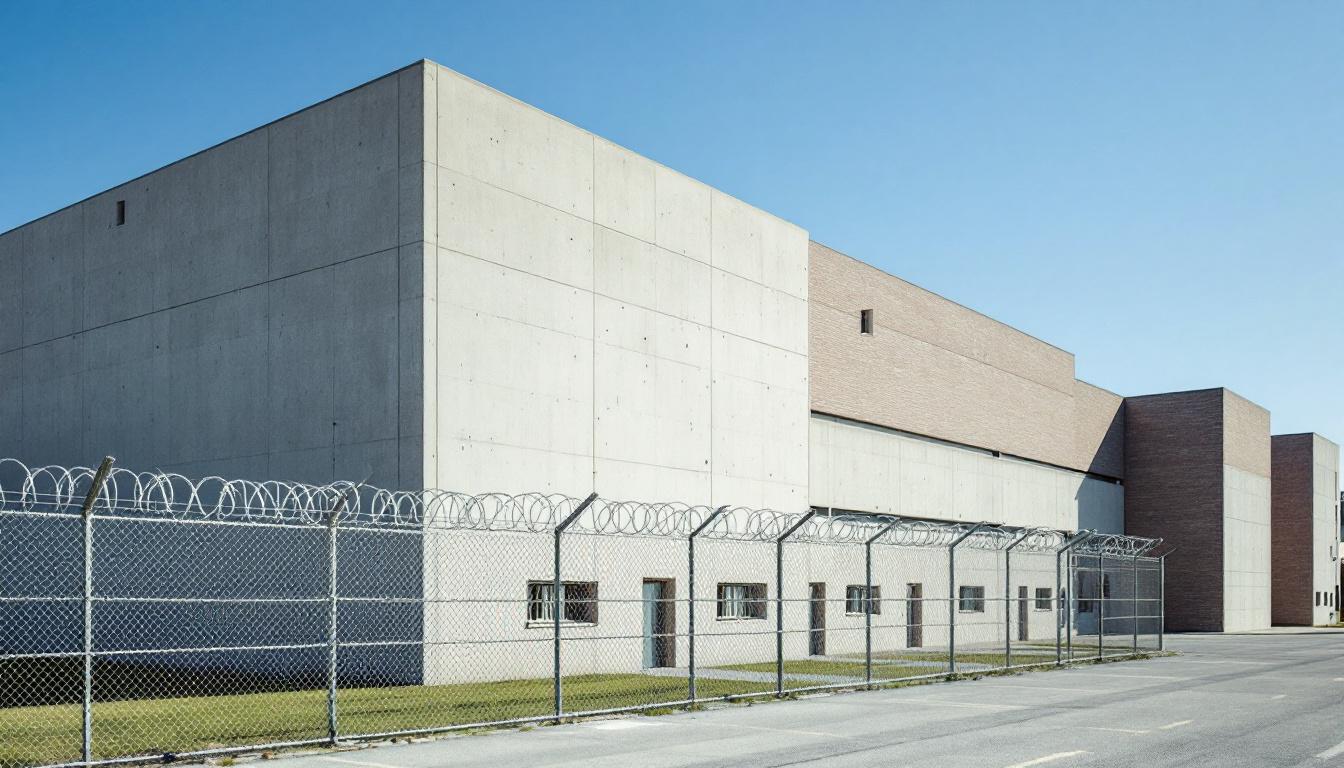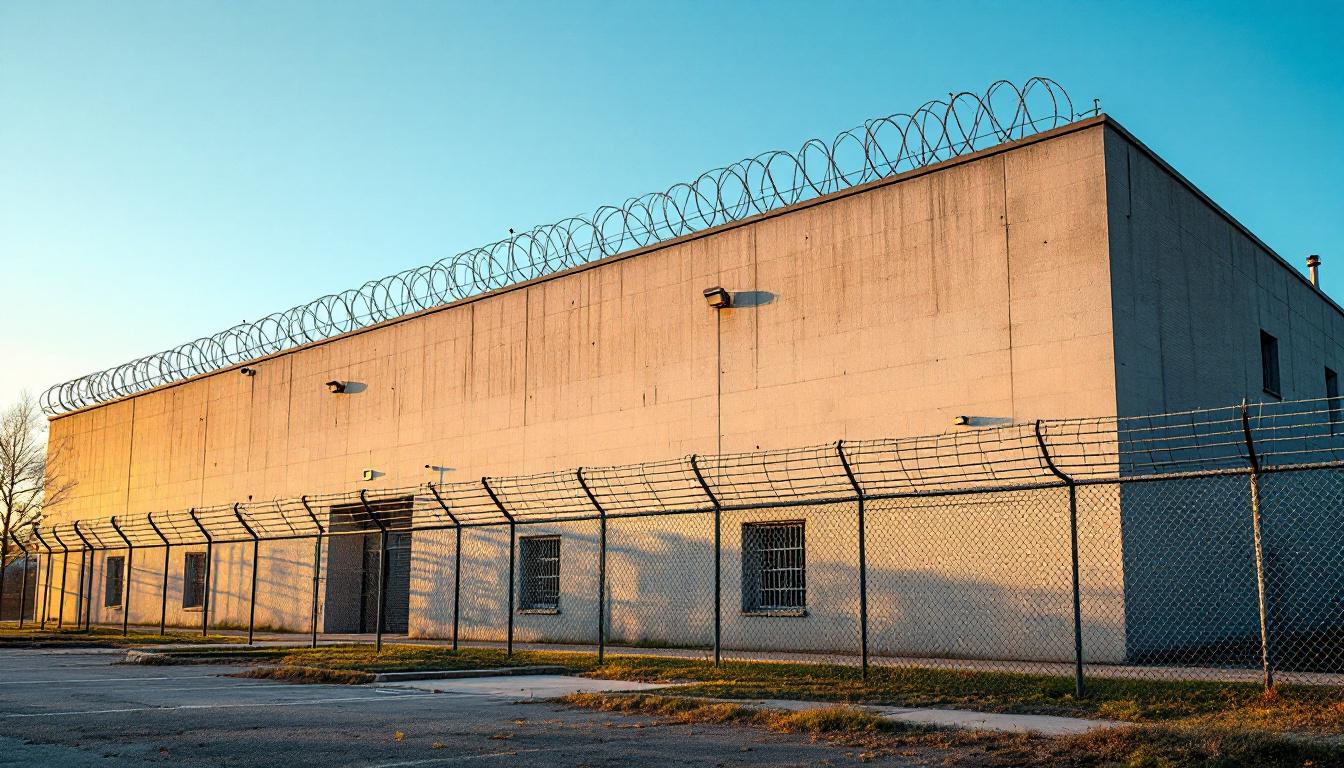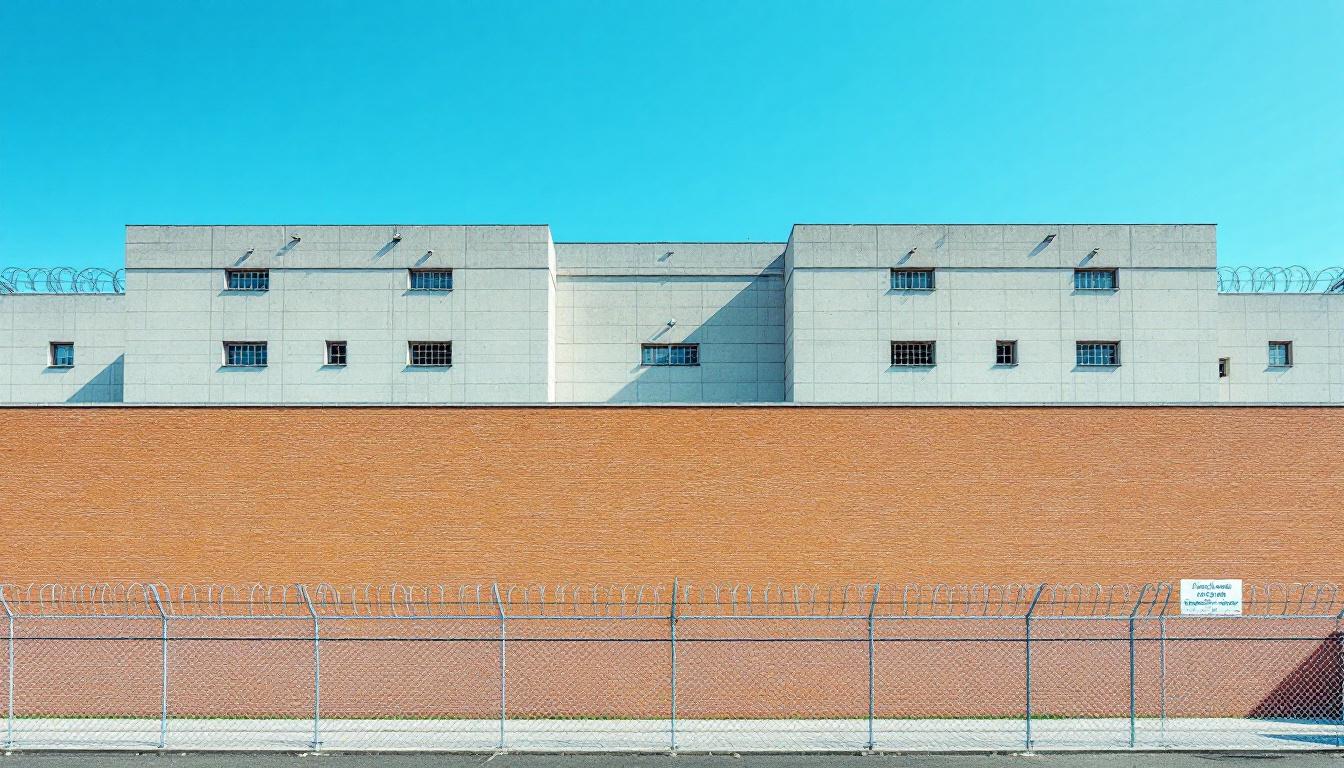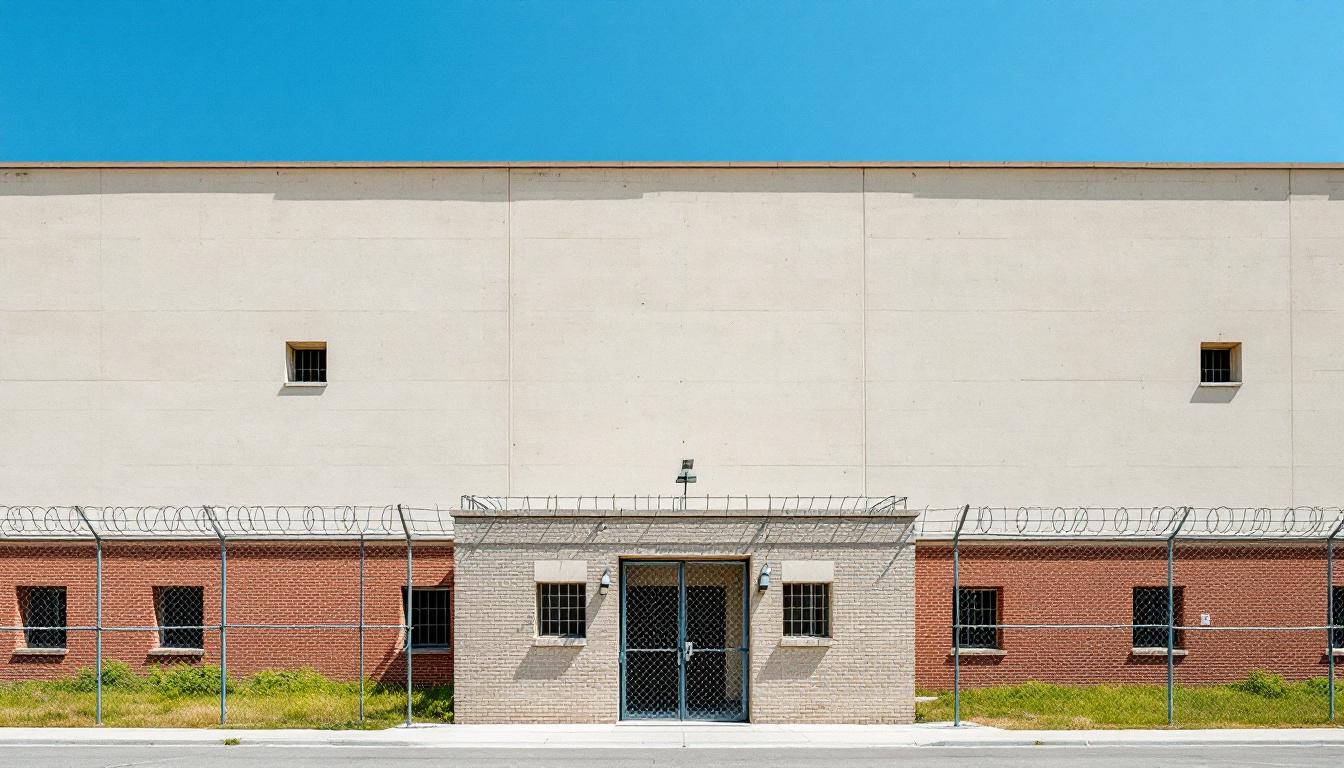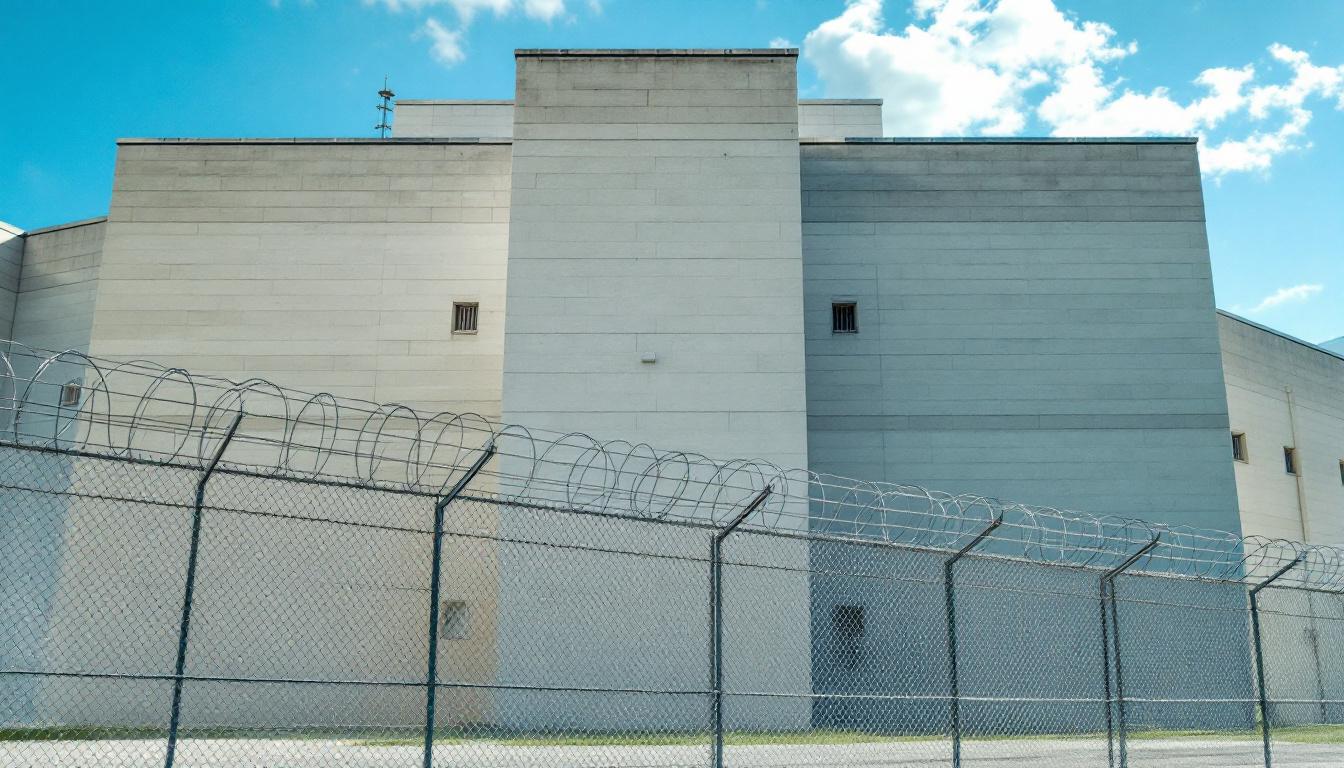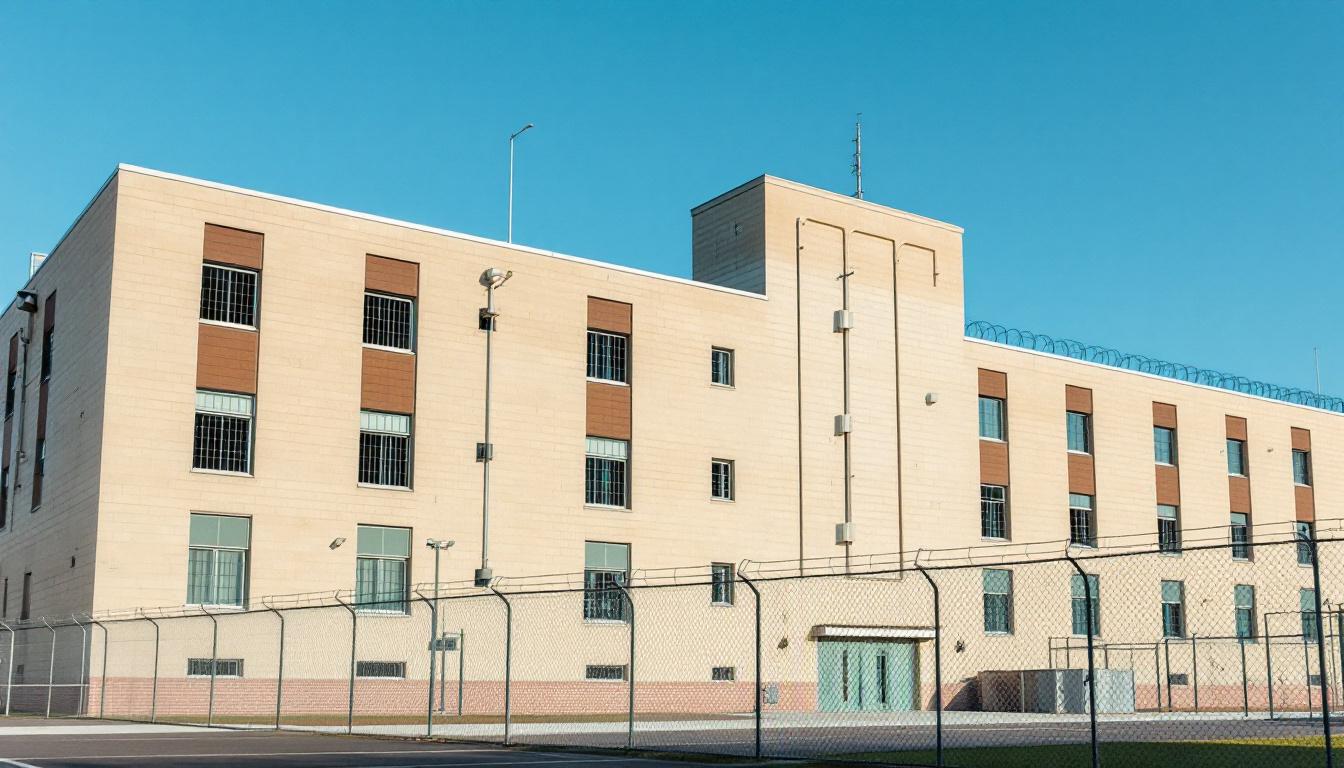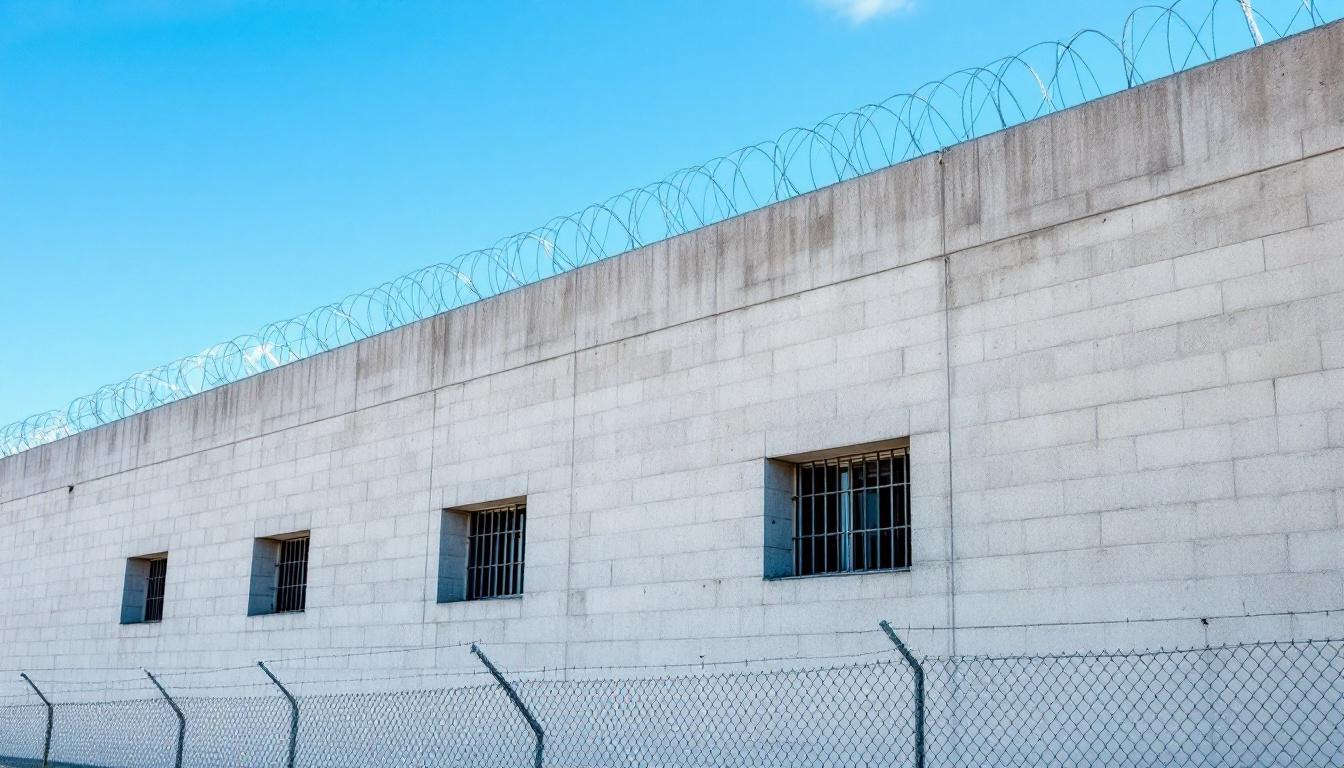
Quick Navigation
How to contact an inmate at Canyon County Detention Center
This comprehensive guide will walk you through how to connect with an inmate at Canyon County Detention Center. Follow the steps below to find an inmate and send letters and photos:
- Search for the inmate using our search tool below
- Create your account or log in to Penmate
- Write your message (up to 6,000 characters)
- Send instantly - inmates receive printed copies daily
Find an Inmate
Search for an inmate to start communicating today
Tip: You can search by first name, last name, or inmate ID number
To contact a person at Canyon County Detention Center start by searching for the person on the official facility website. Perform a search by following these steps:
- Step 1: Enter their first name and last name into the search form and click "Search"
- Step 2: Locate their inmate record
- Step 3: Write down their Inmate ID and any housing information provided
Important! Be sure to enter the person's full name. Nicknames should not be used.
How to Send Messages to Inmates

You can use your phone or computer to send emails, letters, and photos to an inmate. Messages are sent electronically to inmate tablets or kiosks at the facility. If you would like to send a message, start by searching for an inmate at Canyon County Detention Center.
Sending Photos and Postcards

A great way to send love and support to a loved one at Canyon County Detention Center is to send photos and postcards. It only takes a few minutes to send photos from your phone and it makes a huge difference. You can also mail postcards with words of support and inspiration, or design your own postcard for special moments like birthdays and holidays.
Important! Be sure not to send any explicit photos or they may not be approved by the facility. You can also use a photo printing app like Penmate to make sure your photos are printed at the correct size (4x6 or 3x5) and are mailed according to the rules and regulations of Canyon County Detention Center.
Frequently asked questions about Canyon County Detention Center
-
How long does it take to deliver a message?
If you're sending an email message your letter is usually delivered within 24-48 hours. For messages sent via mail you should expect delivery within 3-7 days. All messages will need be approved by Canyon County Detention Center.
-
How much does it cost to send a message to Canyon County Detention Center?
You can send a message free using your phone or mail a message via USPS for the price of a $0.60 stamp and envelope. You can also purchase credits or e-stamps from services starting at $1.99.
-
What services can I use to contact an inmate at Canyon County Detention Center?
Penmate
You can use Penmate to send letters and photos to an inmate from your phone. It's an easy way to stay in touch during your loved one's incarceration. Use the inmate locator to find an inmate's location and contact information, then you can send messages within a few minutes.
Securus messaging
Securus may be another option for communicating with an inmate at Canyon County Detention Center. You can create a friends and family account and purchase credits to send messages. All messages will be reviewed and must be approved by the facility.
JPay
Some county jails and state prisons may support sending messages with JPay. You must register an account with the system, find your loved one, and purchase stamps to send messages. For some locations you can also attach photos.
Smart Jail Mail
You may also check if Smart Jail Mail is available at Canyon County Detention Center. Smart Jail Mail is operated by Smart Communications and has contracted with some state and county jails. After purchasing credits, your messages and photos are sent to the facility, printed out, and then handed out to your loved one.
-
What is the mailing address of Canyon County Detention Center?
Mailing address:
Canyon County Detention Center
219 N 12th Ave
Caldwell, ID 83605
Phone: (208) 454-7541Business hours:
- Monday: 8:00 AM – 5:00 PM
- Tuesday: 8:00 AM – 5:00 PM
- Wednesday: 8:00 AM – 5:00 PM
- Thursday: 8:00 AM – 5:00 PM
- Friday: 8:00 AM – 5:00 PM
- Saturday: Closed
- Sunday: Closed
-
What are the visiting hours at Canyon County Detention Center?
Visiting hours at Canyon County Detention Center vary by housing unit and security level. Generally, visits are scheduled on weekends and holidays, with some facilities offering weekday visits. Contact the facility directly at (208) 454-7541 or check their website for the current visiting schedule. Visits typically last 30-60 minutes and must be scheduled in advance.
-
What items are prohibited when sending mail to Canyon County Detention Center?
Prohibited items typically include: cash, personal checks, stamps, stickers, glitter, glue, tape, staples, paperclips, polaroid photos, musical or blank greeting cards, hardcover books, magazines with staples, and any items containing metal or electronics. Only send letters on plain white paper with blue or black ink. Photos must be printed on regular photo paper (no Polaroids). Always check with Canyon County Detention Center for their specific mail policies.
-
How do I send money to an inmate at Canyon County Detention Center?
You can send money to an inmate at Canyon County Detention Center through several methods: 1) Online using JPay, Access Corrections, or the facility's approved vendor, 2) Money orders mailed directly to the facility with the inmate's name and ID number, 3) Kiosks located in the facility lobby, or 4) Over the phone using a credit or debit card. Fees vary by method, typically ranging from $2.95 to $11.95 per transaction.
-
Can I schedule a video visit with an inmate at Canyon County Detention Center?
Many facilities now offer video visitation as an alternative to in-person visits. At Canyon County Detention Center, video visits may be available through services like Penmate, Securus Video Connect, GTL, or ICSolutions. Video visits typically cost $10-20 for 20-30 minutes and must be scheduled in advance. You'll need a computer or smartphone with a camera and reliable internet connection. Contact the facility for their specific video visitation policies and approved vendors.
-
What identification do I need to visit an inmate at Canyon County Detention Center?
All visitors must present valid government-issued photo identification such as a driver's license, state ID, passport, or military ID. Minors must be accompanied by a parent or legal guardian who can provide the minor's birth certificate. Some facilities require visitors to be on the inmate's approved visitation list, which may require a background check. Contact Canyon County Detention Center for specific ID requirements and visitor approval procedures.
-
How can I find out an inmate's release date?
To find an inmate's release date at Canyon County Detention Center, you can: 1) Use the online inmate search tool if available, 2) Call the facility's records department, 3) Contact the inmate's case manager or counselor, or 4) Have the inmate provide this information during a call or visit. For privacy reasons, some facilities only release this information to immediate family members.
Facility Overview
Contact Information
Canyon County Detention Center219 N 12th Ave
Caldwell, ID 83605
Phone: (208) 454-7541
Official Website
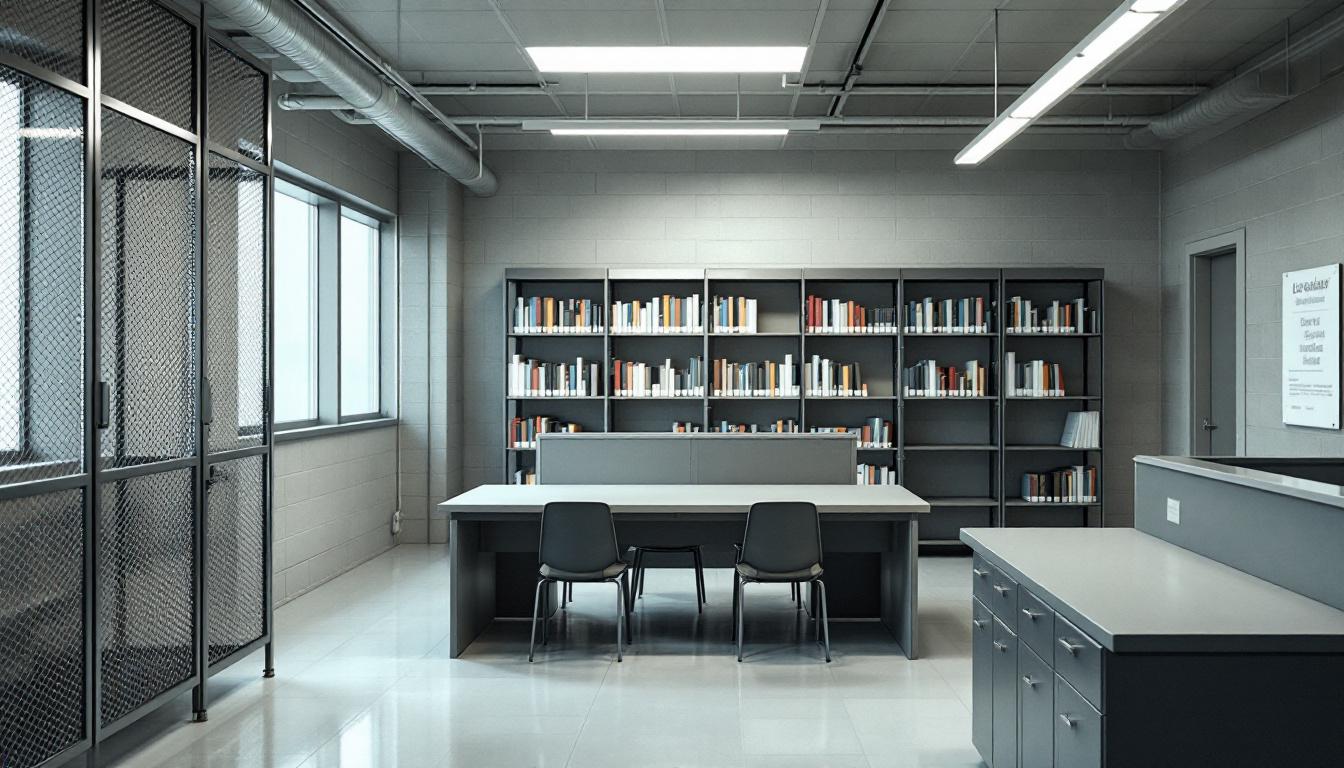
About Canyon County Detention Center
The Canyon County Jail has implemented a comprehensive electronic mail system designed to enhance security while maintaining vital communication channels between inmates and their support networks. As of January 2024, the facility transitioned to a digital correspondence process where all incoming mail is scanned and delivered electronically to inmates, with separate mailing addresses designated for standard correspondence and legal communications. This modernized approach serves to streamline operations while ensuring thorough security screening of all incoming materials.
Situated in Caldwell, Idaho, the Canyon County Detention Center maintains strict correspondence guidelines that prohibit various items including currency, blank stationery, and materials deemed threatening or disruptive to facility security. The jail's mail policy requires all correspondence to include proper inmate identification, return addresses, and adherence to specific size limitations to accommodate their scanning equipment. Legal correspondence receives special handling through a dedicated address system, ensuring attorney-client communications are processed appropriately while maintaining security protocols.
The facility's commitment to balancing security with family connections reflects broader correctional trends toward digital communication systems. By centralizing mail processing and implementing electronic delivery, the Canyon County Jail typically aims to reduce contraband introduction while potentially expediting message delivery to inmates. This systematic approach to correspondence management serves both the operational needs of the detention center and the communication needs of the inmate population and their families throughout the region.
Programs & Services
Communication between inmates and their families receives careful attention at Canyon County Jail, with the facility implementing an electronic mail scanning system to maintain security while facilitating correspondence. The detention center has established specific procedures for both standard mail from friends and family, as well as legal correspondence, ensuring that inmates can maintain important connections during their incarceration. This streamlined approach to mail processing reflects the facility's commitment to balancing security needs with the importance of family communication in supporting successful reentry.
While specific program details are not publicly detailed, Canyon County Jail typically may offer educational services that could include GED preparation and basic literacy programs to help inmates develop essential skills. The facility often provides access to library services and may include vocational training opportunities that align with local employment needs. Counseling services are commonly available at detention facilities of this type, potentially including substance abuse programs, anger management courses, and mental health support to address underlying issues that may have contributed to incarceration.
Support services at the facility may encompass religious programs, recreational activities, and reentry planning assistance to help individuals prepare for their return to the community. The jail's focus on maintaining secure yet meaningful communication channels suggests a broader commitment to supporting inmates' connections with family and legal representatives, which are crucial elements in successful rehabilitation and reintegration efforts.
Daily Life & Visitation
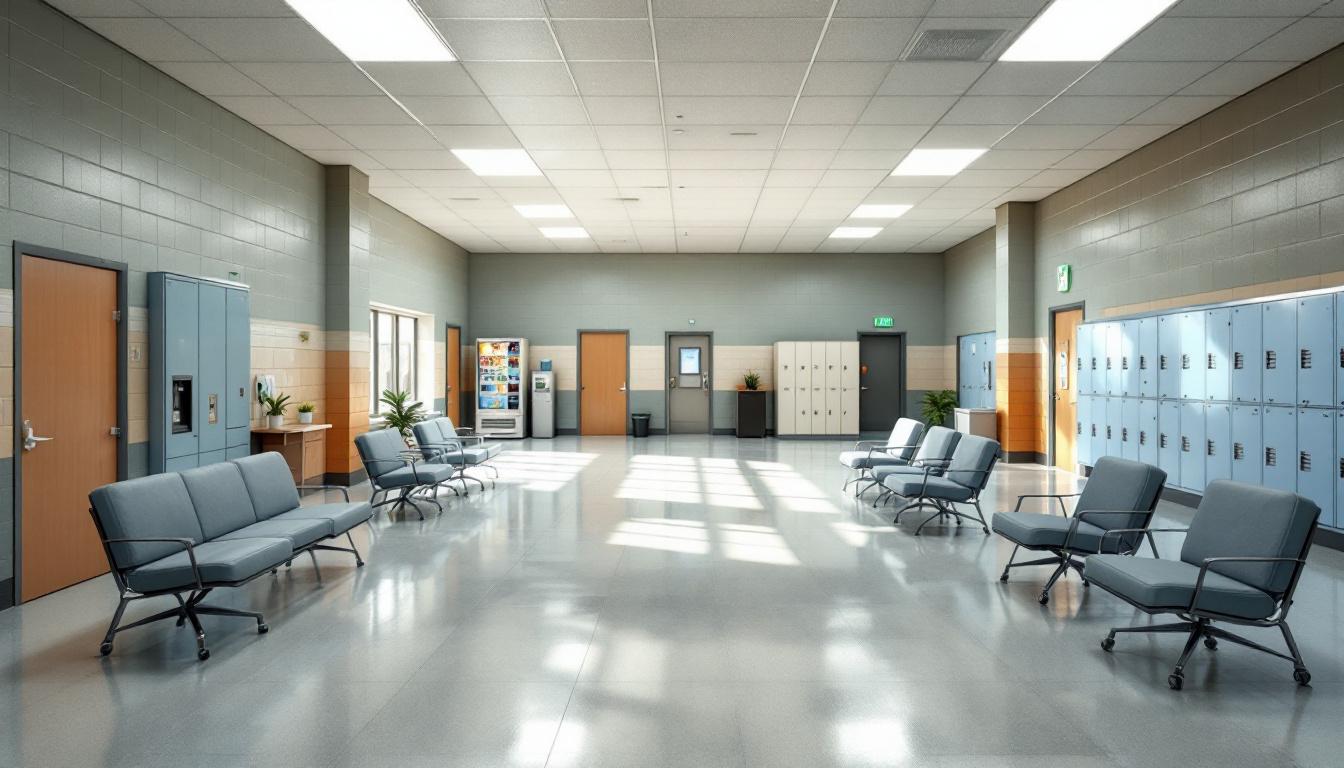
Communication with loved ones forms a central part of the inmate experience at Canyon County Jail, where a new electronic mail system has streamlined correspondence while maintaining security protocols. Since January 2024, all incoming mail is scanned and delivered electronically to inmates, requiring family and friends to send letters to a Kentucky processing center, while legal correspondence goes directly to the facility in Caldwell. This digital system typically allows inmates to receive messages more quickly while ensuring all correspondence meets strict size and content guidelines.
The facility maintains clear boundaries around acceptable communication, prohibiting items like stamps, blank stationery, and any materials deemed threatening or potentially compromising to security. Inmates may often spend portions of their day reviewing electronic messages from family members, though all correspondence undergoes inspection before delivery. Like most Idaho correctional facilities, Canyon County Jail likely provides structured daily schedules that may include designated times for reviewing mail, participating in programs, and maintaining personal hygiene routines.
Living conditions typically follow standard detention protocols, with inmates housed in secure units and provided basic necessities. The facility's emphasis on maintaining safety for both inmates and staff often translates into regulated movement throughout the building, scheduled meal times, and supervised activities. While specific program offerings aren't detailed in available information, many similar facilities may provide educational opportunities, recreational time, and access to religious services as part of their daily operations.
Ready to Connect?
Start communicating with your loved one today
Search for an Inmate
